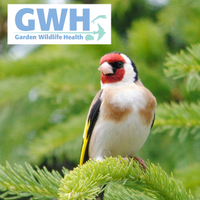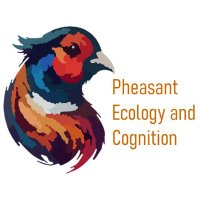
Owen Wright
@owennw
@SWBio_DTP PhD student researching #bee #behaviour and #disease at @CrabExeter & @UoExeterCEC, @UniofExeter. 🐝
ID: 4253008881
https://psychology.exeter.ac.uk/staff/profile/index.php?web_id=Owen_Wright 22-11-2015 23:17:29
137 Tweet
233 Followers
396 Following

Interesting last student talk of the day by Owen Wright about whether agri-environment schemes reduce virus prevalence in honeybees #CLEScon




New #PhD opportunities in #AnimalBehaviour CRAB with Darren Croft Lauren Brent Natalie Hempel Jo Madden, Tim Fawcett & Safi Darden psychology.exeter.ac.uk/research/centr… #NERC NERC GW4+ Doctoral Training Partnership #findaphd #graduatejobs Apply now!



Important new ZSL Science paper on the 'Apparent absence of Batrachochytrium salamandrivorans in wild urodeles in the United Kingdom' out today in Scientific Reports - findings are also summarised in our updated factsheet: gardenwildlifehealth.org/portfolio/amph… #wildlifehealth #bsal #chytrid


Our new paper out today shows that wild UK #amphibians appear to be free of #Bsal. However, as we know Bsal is present in captive collections across Europe, biosecurity measures need to be increased to prevent infection spilling over. #chytrid Mitigating Bsal in Europe nature.com/articles/s4159…

We re-screened archived samples originally collected from wild UK newts as part of the Big Swab in 2011, with none of the newts testing positive for Bsal, which combined with ongoing surveillance work by Garden Wildlife Health show an apparent absence of Bsal in wild UK amphibians.




.Thomas Price Becky Boulton, *eye* am sure you've... seen... this by now, but keep an eye open (but not too open!) for this next time you're on sweat bee field work. (Actually, you should *bee* okay: as Hauke Koch points out, probably Meliponini rather than Halictidae)

4 years and 1,388 behavioural trials after, first paper from my PhD is officially out in Scientific Reports ! Leadership during cooperation in #guppies is heritable and linked to social traits in males. With Darren Croft and Safi Darden #openaccess #fishsci nature.com/articles/s4159…


Important academic question from CRAB....which one is best? Uni of Exeter Doctoral College ExeterPsychology


After a 4.5h defence, I finally passed my PhD yesterday and popped a cork into the ceiling as is the exeter CRAB tradition! Thanks to my examiners Natalie Hempel Luca Borger and supervisor Pheasants@Exeter! Time for a Twitter handle change!!! #AcademicChatter #PhDone



Absolutely buzzing🐝to share my first research article! Using the BEEHAVE model, we found that antibiotic treatments can dramatically reduce honey bee colony-level fitness. So grateful to have been able to work alongside these great co-authors! besjournals.onlinelibrary.wiley.com/doi/full/10.11…



